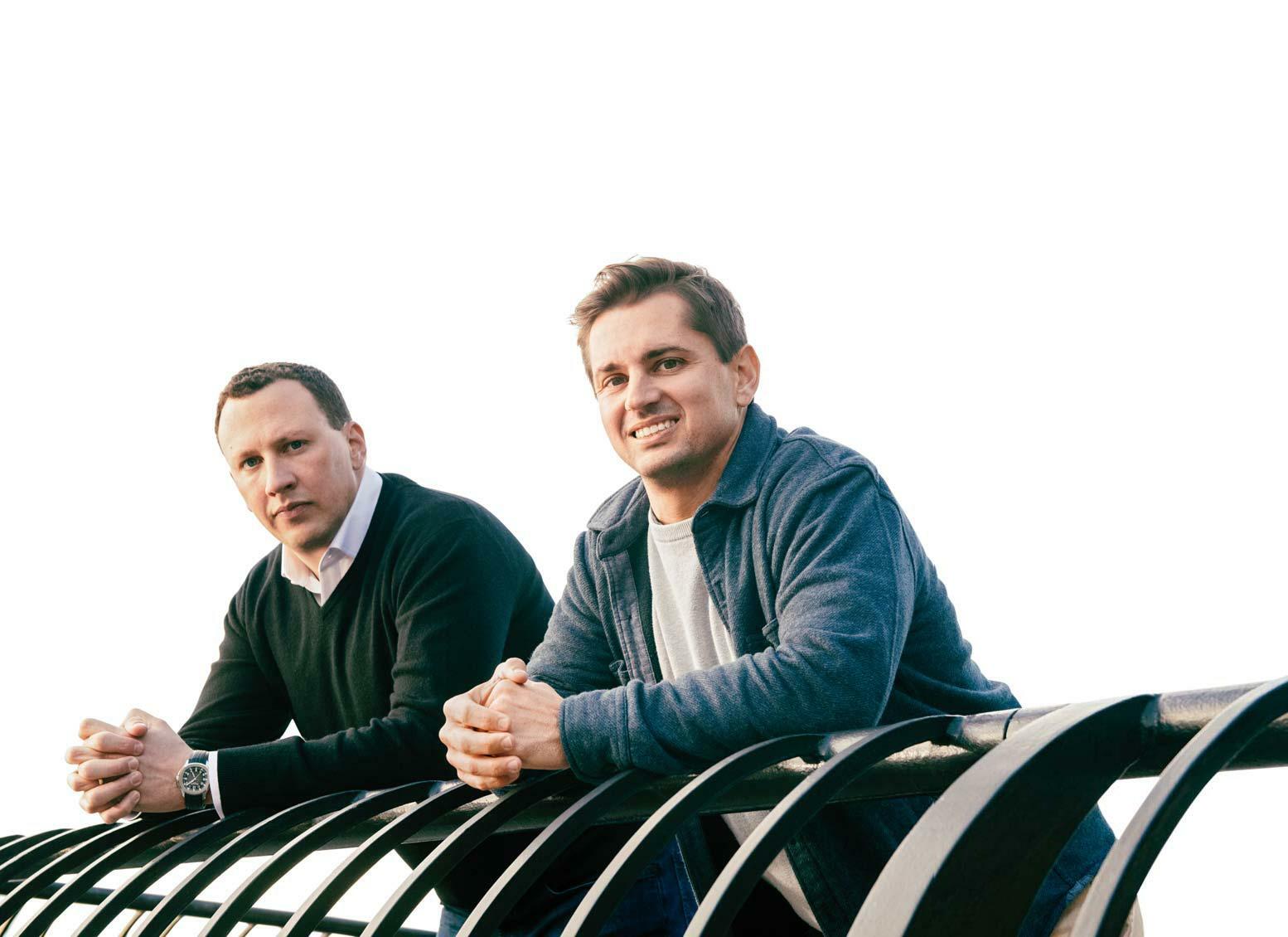"It was next to impossible," says Campo, Haven's CEO. "There's no underlying infrastructure in place."
Haven is changing that. The company helps homeowners create custom home battery systems, connects them with electricians for installations, and makes software that tells the home when to pull energy from the grid and when to switch to batteries. Not only can Haven's batteries prevent home power outages and reduce energy bills by up to $1,000 per year, but the company's software-based marketplace even allows homeowners to earn money from their stored power.
Co-founded by Jeff Chapin, the former chief of product at the directto-consumer mattress company Casper, Austin-based Haven has also had Casper co-founder and former CEO Philip Krim in its corner from day one. Before Haven raised a $4.2 million seed round in 2022, the startup was funded personally by Krim, 40, who continues to own a minority stake in the company. After leading Casper from its founding in 2014 through its $476 million IPO in 2020, Krim left to focus on investing in other founders through his venture firm, Montauk Ventures. Having served as CEO of a fast-growing startup, he knows how hard it is to run a business as a young CEO.
"You're accountable to everything from business performance to fundraising efforts, and you have to find the hours to get it all done," says Krim. "It's lonely at the top because there's no one else who has that shared accountability."
We let Krim put that empathy into practice by bringing him and Campo together recently in New York City, where the pair discussed everything from making transformative hires to how to establish the right culture for your company.
CAMPO What are some valuable leadership lessons you can share with a first-time CEO?
KRIM To me, leadership is the practice of having a team that is following you toward the mission in the way that you want them to follow you. What are the values that are important to you? There's no right or wrong answer. There are some organizations where it's all about being very kind to one another and empathy is really important, and that's a great virtue for some businesses. Then there are other businesses, like maybe a hedge fund, where I'm sure it's not about being kind-it's about brutal honesty and radical transparency, and that can be fine too. The key is that you are clear and transparent with everyone about what the standards are. I worked for years with an executive coach, and one of the most important things they taught me was that confusion kills organization and productivity. Whatever you can do to clear confusion from the company allows you to lead in the way that you want to lead.
CAMPO When you look back on your time as a founder, what are some of the lessons that you've had to learn the hard way? KRIM Focusing on the team that surrounds you as you're building this company is the most important thing. Do whatever you can to make sure that team is coming together, that you're building a strong culture, and that you have a foundation of values. If you ever see someone who's not being accretive to that or isn't pulling their weight, make the tough decision to replace them. It can be very challenging and uncomfortable, and it takes discipline and experience. But you have to keep the culture bar high.
CAMPO We're at 15 people today, and we'll be at 30 in a couple of months. How do you protect your culture as you scale?
KRIM Culture starts at the top. Everyone looks to the CEO for what kinds of behaviors and attitudes they should exemplify. You set the tone. Remind everyone what your expectations are and then deliver on those expectations with how you show up for your company. Remind people that there's a bigger mission here. Be repetitive around what you're building, what the company's North Star is, and why you're all working so hard every day. Sometimes people lose that focus in their day-to-day work.
CAMPO That's a great point. So how do you really make sure that bigger vision comes through?
KRIM The company will achieve the bigger goals only if it hits its milestones. For Haven, that means launching in new markets and reaching revenue goals, which make it a little easier to bring on new investors and secure new capital. That all ladders up to the bigger vision. Sometimes people get frustrated that what they're working on doesn't feel connected to the big picture. It's the CEO's job to make sure people understand that we have daily, weekly, and quarterly goals, and we have to hit those for us to accomplish our big-picture mission. Connecting those dots in a way that is cogent, logical, and compelling is a big part of what a CEO does.
CAMPO What's your advice around building the strongest team possible?
KRIM You always have more work than people to help with that work, so there's always immense pressure to get a position filled as quickly as possible. But the important thing is to set a high bar with talent. The folks you're bringing on in these early stages are going t...


